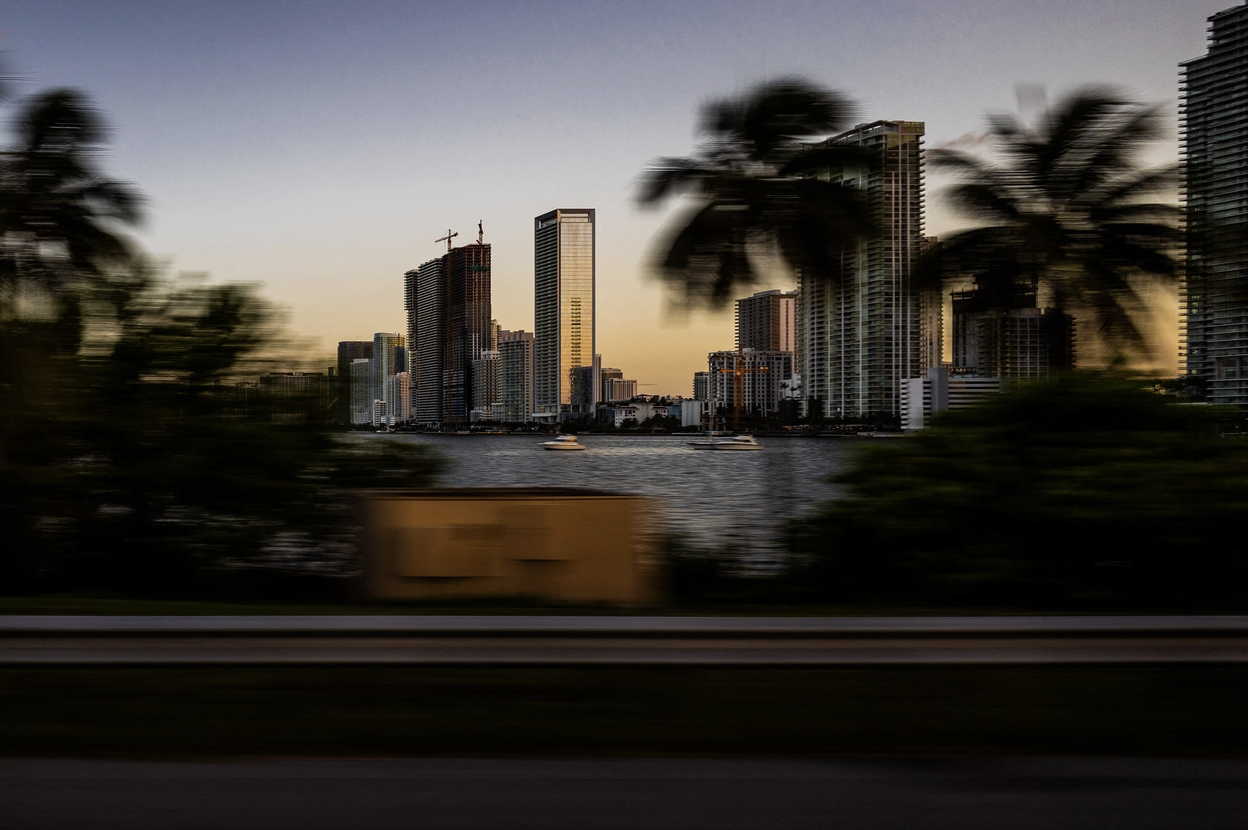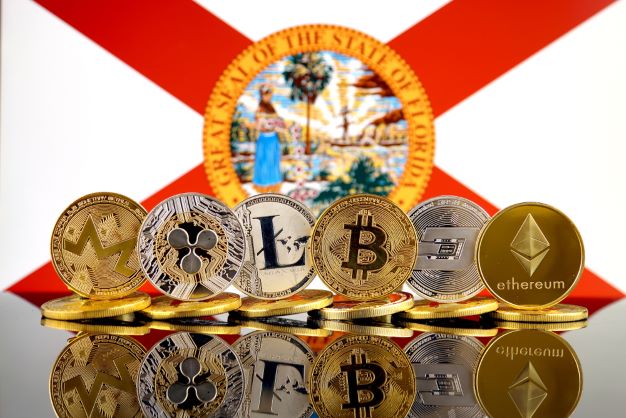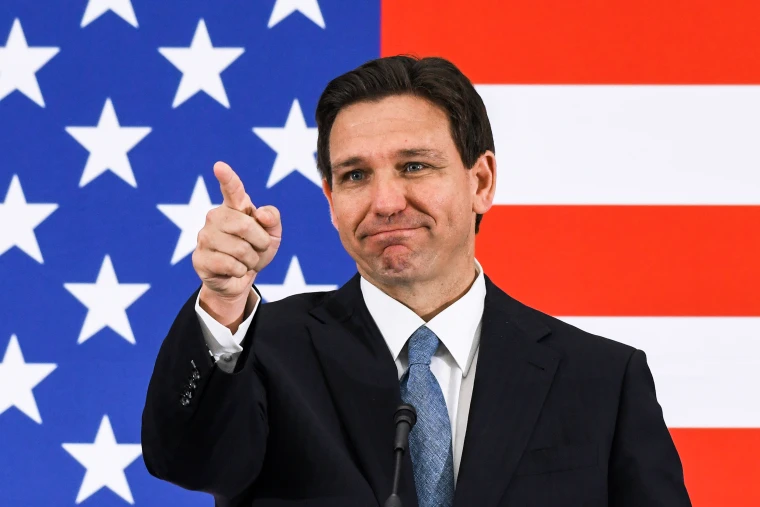MIAMI — The city set to host Donald Trump’s future presidential library is also home to the hottest election in Florida — a 13-way mayoral brawl that could test whether Democrats have any pulse left in the state.
Miami voters head to the polls Nov. 4 in a race likely headed for a December runoff, pitting MAGA-aligned candidates determined to extend Trump’s influence in South Florida against Democrats trying to claw back relevance in a deep-red state.
The election has received far less attention than the mayoral contest in New York City or the governors’ races in Virginia and New Jersey. But it’s laced with gripping storylines: indictments, dynasties, savage one-liners, taxpayer-funded lawsuits and even a court-thwarted effort to push the election back a year — a move that would have allowed current officeholders to blow through term limits. Some rivals openly show their disdain for each other. Others accuse fellow candidates of wanting the job as a stepladder or grift.
Miami is flush with money and ambition — and dysfunction. Booming post-pandemic growth has drawn a wave of newcomers, driving up costs and straining longtime residents. For some, the election feels like a referendum on whether the city can stay livable while it keeps cashing in on its reinvention.
“Miami is at a precipice. We have, post the pandemic, been blessed with many new residents and many new businesses,” said Miami-Dade County Commissioner Eileen Higgins, a top-polling candidate and registered Democrat. “The city’s corruption, dysfunction and incapability at getting things done is risking that future success.”
The outcome in Miami won’t just decide who runs City Hall. It will help determine whether Democrats can still compete anywhere in Florida, a state that’s slipped from swing status to Republican stronghold under Trump and Gov. Ron DeSantis.
While the race is technically nonpartisan, a win here would still give Florida Democrats their first high-profile victory since 2018 and a foothold in a region that has drifted steadily to the right. For Republicans, keeping control of Miami would cement the Trump-era realignment that has turned the state into a national GOP stronghold.
While Trump won Miami-Dade County in 2024, former Vice President Kamala Harris won the city by around 1,000 votes, local election data show. The city encompasses a wide range of communities, from Coconut Grove and downtown to the residential Upper East Side, as well as Overtown, a historic Black neighborhood, and Little Haiti. Democrats hold a 23,000-person registration advantage.
“If Florida can show in the city of Miami race that Democrats can still perform and still win these elections, it should send shock waves across the country to continue to pay attention to Florida, continue to invest here,” Florida Democratic Party Chair Nikki Fried said.
Lead Republican candidates, meanwhile, often play up their Trump ties and warn voters a Democratic mayor would worsen Miami’s crime, increase taxes and jettison the president’s agenda.
“A liberal, Democratic, progressive mayor in Miami will serve only to have a platform with which to bash the Trump administration,” said DeSantis-endorsed candidate Emílio González. “They can’t help themselves. They all wear the same uniform. They all have the same script.”
The top Democrats in the race are Higgins, who qualified to run by petition and is the top-polling woman in the race, as well as ex-City Commissioner Ken Russell, who’s returning to local politics after two attempts at running for Congress.
González, a former city manager as well as a partner and senior adviser at an asset management firm, is all-in on the governor’s push to end property taxes on primary homes. Other leading GOP candidates include Xavier Suárez and Joe Carollo, who’ve been mayor and faced off before. There’s also former Miami Commissioner Alex Díaz de la Portilla, who DeSantis removed from office following bribery and money laundering charges (which were later dropped).
Carollo, who was dismissed last month from a federal lawsuit alleging he tried to leverage city regulations to put two Little Havana establishments out of business, is the race’s top fundraiser. He said he plans to spend $300,000 ahead of Nov. 4. If he makes it to the runoff, he said, he expects to spend about $5 million.
“I don’t throw my money into all these handlers, PR people and fundraisers,” he said. “I do it all myself.”

Miami’s exploding growth
Donations to candidates in the race have come from developers, engineering firms and restaurants contributing to the city’s boom. Citadel CEO Ken Griffin, who relocated his firm from Chicago to Miami, hasn’t backed a candidate, disclosures show. But his philanthropic initiative, Griffin Catalyst, paid for an Oct. 16 debate hosted by the Miami Herald and NBC 6.
“Miami’s rise as a global city is driven by economic opportunity and an exceptional quality of life,” Griffin said. “I admire the thoughtful political engagement of the people of Miami and am grateful to those who are willing to serve our community in public office.”
Miami’s metro area is one of the largest in the U.S., yet the city has about half a million residents. Since 2019, it has seen explosive growth, first from Trump’s tax law limiting state and local tax deductions that made red states more attractive, then from Covid and unrest in more blue-leaning cities. Francis Suarez, the term-limited, current mayor — the son of candidate and ex-mayor Xavier Suarez — also lured in tech, startup and crypto companies, as well as private equity and finance firms.
The city’s economy had revolved largely around tourism and service-sector jobs. Now, Miami looks and feels like an international city on a sharp rise. It’s slated to host multiple FIFA World Cup games and the G-20 summit at nearby Doral next year. The day after the mayoral election, it’ll host the American Business Forum in which speakers include Trump and Nobel Peace Prize winner and Venezuelan opposition leader María Corina Machado. Francis Suarez, ABF’s board president, said he sees the event as his “gift to Miami.”
“This is where I got the city: I got it in bankruptcy with a significantly higher homicide rate, significantly higher poverty rate, and this is where we’ve taken it,” Suarez said. He often tells people Miami has long been viewed as the capital of Latin America, but now it’s becoming a “truly great global city.”
But downsides have also arisen with that success. Rates of homelessness and homicide are low, but an estimated 56 percent of Miamians live paycheck-to-paycheck. At town halls and debates, candidates get asked about housing, public transit, flooding, mass deportation and corruption. González said people who grew up here are moving away because it’s unaffordable.
“I think it’s wonderful if Company X wants to move to Miami and create 1,000 jobs. But don’t bring those 1,000 jobs from the state you just came from,” he said. “Start hiring locals.”
What also concerns González is how legislative aides tell him they tune into the “circus” of city commission meetings for entertainment. The Oct. 16 debate brought together the four top-polling candidates (Carollo qualified but didn’t respond in time) and the exchange was civil. Candidates took a selfie together and slights were subtle.
But that’s not the norm. At a CBS News debate a week earlier, Carollo shouted onstage at rivals and hecklers. Díaz de la Portilla called Russell a “child” for leaving his commission seat to run for Congress. Russell shot back: “At least I didn’t leave in handcuffs like you.”

The Trump Factor
Trump hasn’t weighed in on the race, where early voting is already underway. But his influence still hangs over the election, in part because his foundation is set to receive Miami waterfront land for his future presidential library.
Frustrated the topic didn’t come up at debates, Russell raised it himself, saying it was wrong for the library to be built next to the city’s iconic Freedom Tower once used to process Cuban refugees. In an interview, he promised to “cut the ribbon” with Trump if elected — but only if the president returned to the immigration policy he ran on, focused on hard criminals.
“Regardless of whatever my feelings are about the president, his presidential library standing next to the Freedom Tower is unacceptable under his current immigration policy,” Russell said.
Republicans say they’re worried a Democratic mayor may try to foil the library’s construction, though Higgins shrugged it off, saying it was natural for Trump, a Florida resident, to have “activities in Florida.” A judge already temporarily put the deal on pause after orchestrators failed to follow open government laws.
Miami-Dade County Republican Chair Kevin Cooper warns donors who’ve moved to Miami from blue states that they shouldn’t back candidates who would implement the same policies they left behind. During a GOP forum this month, the county’s GOP distributed pamphlets warning “Extreme Eileen” would bring “higher taxes, crazy spending and more crime” if elected.
“Democrats in other big cities have used their office to interfere with President Trump and President Trump’s agenda,” Cooper said, “and I don’t want to see that happen here.”
Just like in races across the U.S., Republicans often deploy the term “socialist” against Democrats. But it tends to hit especially hard in South Florida given how sensitive the topic is to diaspora communities who’ve fled places like Cuba and Venezuela. Democrats running for Miami mayor shun the term and stress their nonpartisanship.
Russell’s messaging has focused on ensuring working-class people can afford to live in Miami so the city can run well. When Florida’s DeSantis-appointed chief financial officer blasted over-spending in Miami last week, Higgins, a mechanical engineer and former Peace Corp director in Belize, vowed to rake through the city’s finances.
“Part of the affordability crisis is we don’t actually know if the city of Miami government is using the taxpayer dollars to the best of its ability so that it can actually lower costs for residents,” she said.
She also laughed off being labeled far left. “Look what they’re not saying: They’re never able to say I’m corrupt,” she said, pointing to how she expanded affordable housing and got federal grants for transportation.
In contrast, Republican candidates frequently draw parallels to Trump, a reflection of how the city has shifted. Even Francis Suarez, who once didn’t vote for Trump or DeSantis, said he trended right with the urban, Hispanic and young community he represents.
A surrogate for Diaz de la Portilla, a former Senate majority leader who faced the now-dropped felony charges, read a statement from him at a forum echoing Trump’s perspective that “lawfare is real.” Carollo, who worked with Trump when he was Doral city manager, said he identified with Trump’s legal troubles. “I paid a price,” he said, “just like President Trump paid a price.”
González similarly has Trump ties, having worked on the White House transition team and at the Trump-aligned America First Policy Institute. He said he wasn’t campaigning as a Republican, nor running away from it, but accused Democrats of forcing partisanship into the race by dubbing him the “MAGA mayor.” Still, he added, Carollo “is not going to out-Trump me.”
But, he insisted, he sees himself as being in the middle: “I’m fending off the criminal crooks on the right and the commies on the left here.”
Source: https://www.politico.com/news/2025/10/28/miami-mayor-election-trump-maga-00624245




